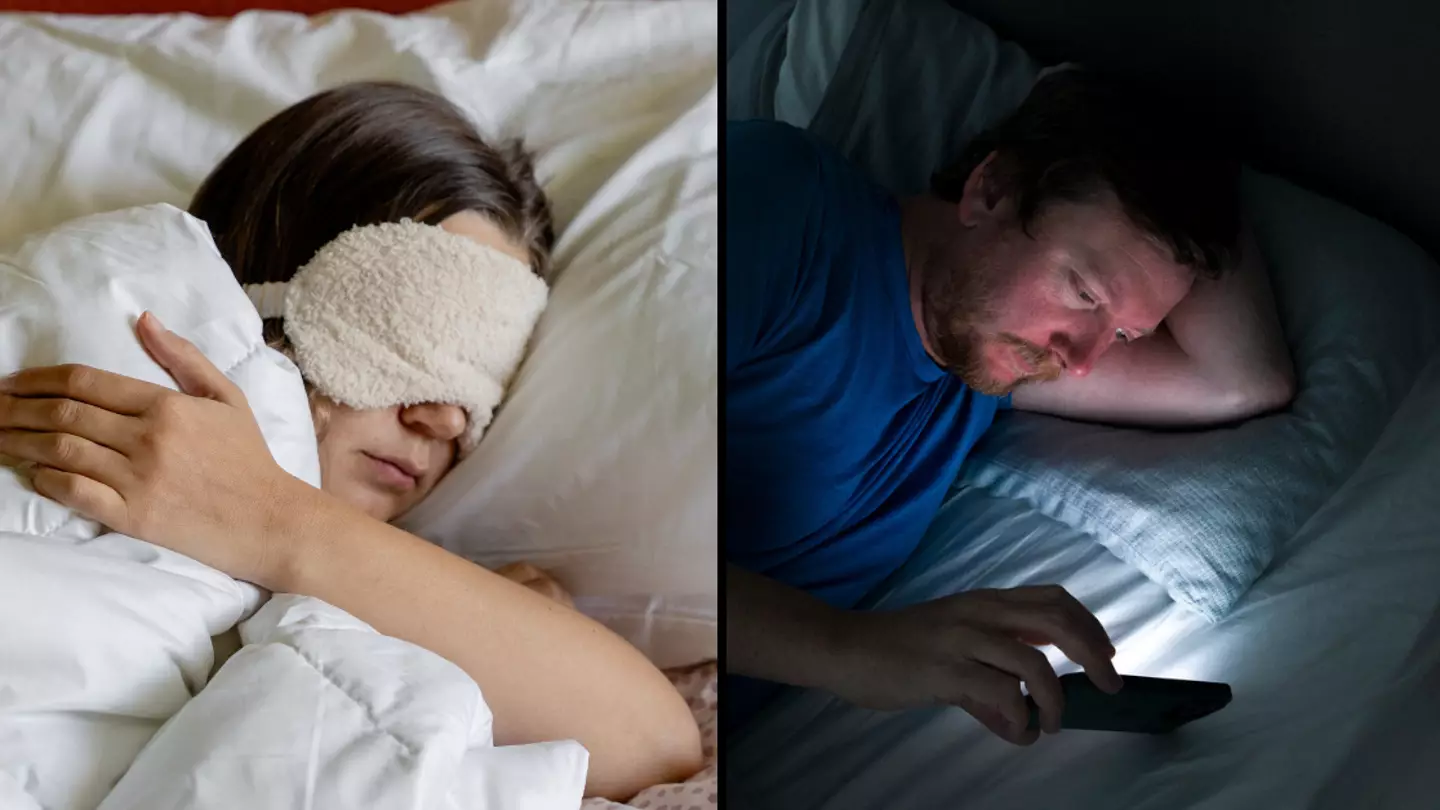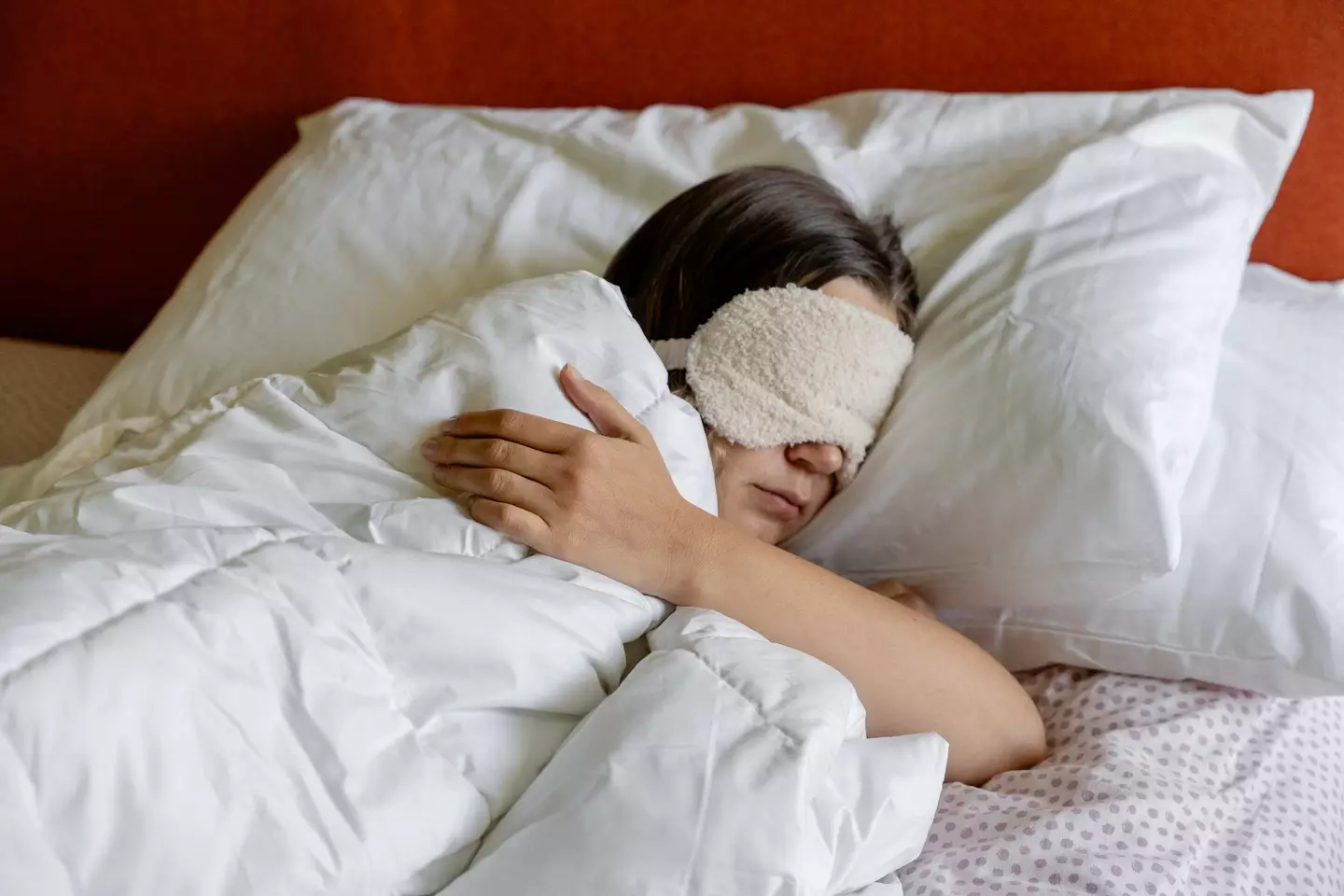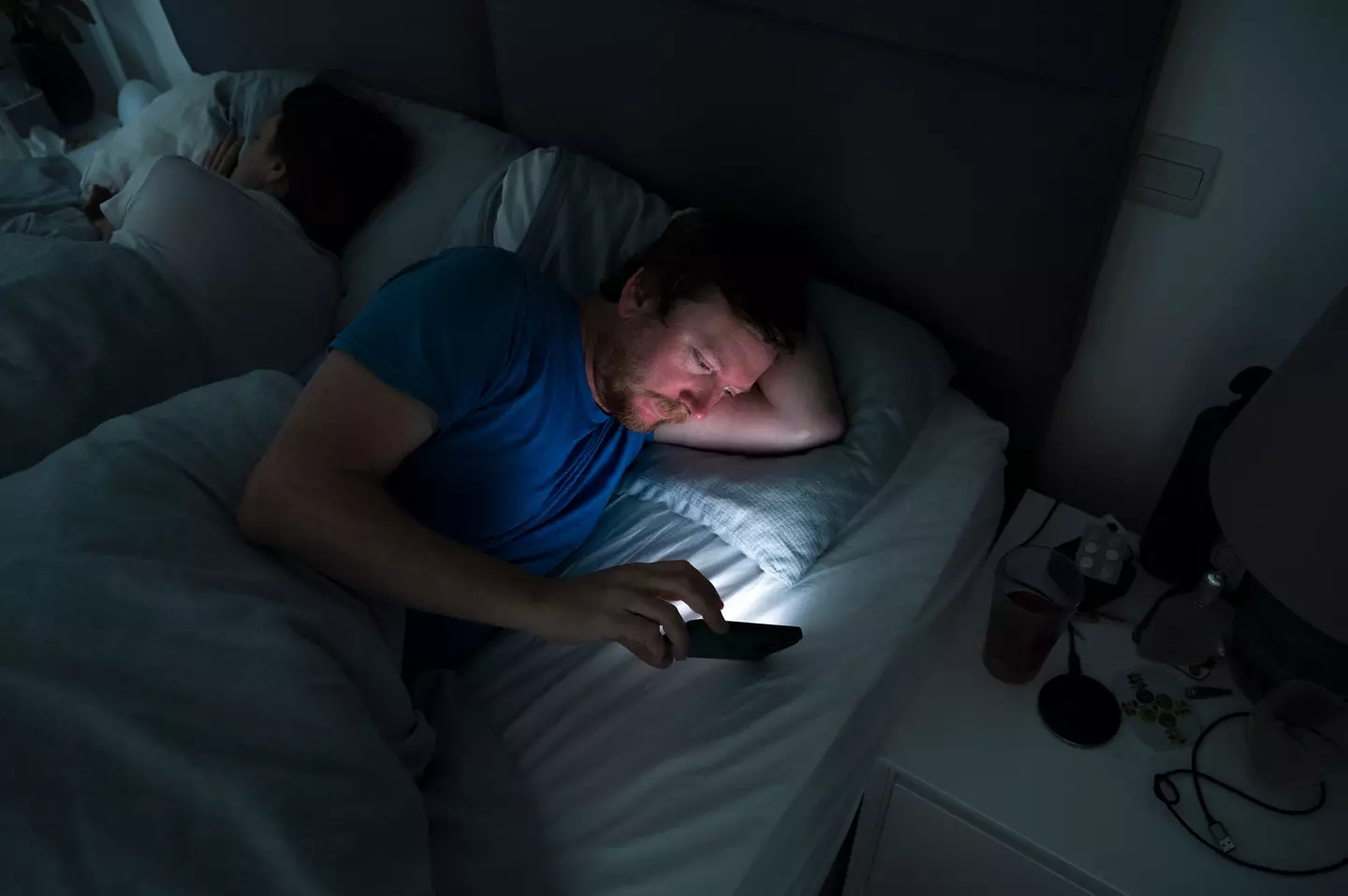
We've all been there, putting the phone away early in the hope of getting eight hours sleep when bam, the alarm goes the next morning and you feel as rough as sandpaper.
Thinking you'd done exactly what you were meant to to feel well rested only for it to be thrown back in your face, where you feel less rested than after the nights where you doomscroll on TikTok until 2.00am.
Likewise, you might feel fresh as a daisy first thing only for a nap to feel inevitable come 1.00pm. But there could be a fair few reasons why you feel knackered even after getting a supposed good night's sleep.
The good thing is that a lot of these can be fixed quite literally overnight.
Advert
LADbible spoke to NHS doctor, and Time4Sleep's resident sleep expert, Dr Hana Patel, who answered some of the most frequently asked questions when it comes to still being 'so tired'.
'Catching' up on lost sleep?
Dr. Patel revealed that we don't always need to catch up after not getting the sleep we hoped for the previous night.
Sleep doesn't work in the same sense as making up the hours - at least not after a certain period of time. In fact, trying to make up sleep can make you feel a whole lot more worse.
She explained: "The best evidence we have from studies of sleep deprivation suggests that we only need to make up less than a third of our lost hours, as the sleep we get on recovery nights may be deeper and more restorative.
"It is also important to note that when we start to chase sleep, we can get stuck in unhelpful cycles of anxiety and daily changes in when we fall asleep and wake up, which can allow sleep problems to continue.”
Dr Patel said: “Rather than trying to catch up on sleep, it is better to focus your efforts on sticking to consistent sleep and wake-up times each day.”

You need less sleep as you get older, so why am I so tired?
Dr Patel explains this is a common misconception about sleep as you get older.
"In fact, older people may simply have more difficulty getting the sleep they need," she explains.
"This can happen for several reasons, including the fact that our body clocks can change with age, meaning we are more likely to wake up early.
“Furthermore, research has shown that the quality of sleep we get also changes as we get older, meaning that less time may be spent in deep stages of sleep which may increase the frequency of nighttime waking.
"Health conditions that cause bodily discomfort can also contribute to this, making it difficult for older people to sleep through the night.”
Does drinking alcohol before bed impact my sleep?
Dr. Patel says: “Regular drinking before bed can affect the quality of your sleep, making you feel tired and sluggish. This is because drinking disrupts your sleep cycle, suppressing the onset of REM sleep.
"Alcohol is also a diuretic, meaning you may wake up to use the bathroom more frequently during the night.
"Some people may find alcohol helps them get to sleep initially as it has a sedative effect, but this is outweighed by the negative effect on sleep quality through the night."
Dr Patel says you should not drink alcohol for 'at least four hours before you go to bed' to allow for the booze to be metabolised.
"If you do plan to have a drink later in the evening, try to keep your alcohol intake as low as possible to avoid large amounts of sleep disruption," she said.

Am I sleeping too much or too little?
Sleeping for too long or too little can impact your health negatively, with it raising the risk of diseases, such as coronary heart disease, diabetes, anxiety and obesity in adults aged 45 and older.
"If you find yourself feeling tired during the day despite sleeping 10 hours or more per night, you might be at risk of hypersomnia," Dr Patel says.
"Consider contacting your GP for further advice.
"It is recommended for adults to sleep between seven and nine hours per night, whereas school age children need between nine and 11. Women also typically need more sleep than men, and are more likely to experience conditions that may disrupt sleep, such as insomnia, anxiety or depression.”
Don't stay in bed if you can't get to sleep
Dr. Patel recommends: “While it may seem counter-productive, staying in bed when you can’t get to sleep is not recommended as it can allow you to associate your bed with wakefulness and stimulation.
"If you find yourself having difficulty getting to sleep, try getting out of bed and doing something relaxing, such as reading a book, meditating or listening to calming music.
“Stressing too much about not being able to sleep and feeling tired can make the problem even worse, as it raises levels of adrenaline and keeps the brain stimulated. This is why focussing your attention on something other than trying to sleep is often the best course of action.”

Should you take long naps or short naps to feel better?
There is a specific time period for the 'perfect' nap, Dr Patel explains. She said: "Researchers say a 20-minute nap is the best length. A short nap like this allows your mind and body to rest without entering the deeper stages of sleep.
"If you have time and think you need a longer nap, napping for 60 to 90 minutes is enough time to have deep, slow-wave sleep, but end up in the lighter stages of sleep so you feel alert when you wake up.
"Medium-length naps of around 45 minutes can be problematic because you will likely wake up during slow-wave sleep, the deepest stage, which can leave you with that groggy feeling, called sleep inertia, when you wake up.”
Why hitting snooze could be your problem
We've all done it. Hitting that snooze button on our phone alarm three, four, or even five times depending on just how knackered we're feeling first thing in the morning.
But Dr Patel explains that this could 'disrupt your body's internal clock and shift your sleeping patterns'.
"It can also make you feel more groggy in the morning as it may cause you to wake up mid-sleep cycle," she says.
"However, discussion on this topic is inconclusive, as a recent study published in the Journal of Sleep Research suggests that, shortly after waking, people who had snoozed for 30 minutes performed better on arithmetic equations and memory exercises than people who got up after only one alarm.”

Make your bedroom cooler than you might like
The temperature shouldn't be baltic by any means. But those who like it warmer might want to turn the thermostat down a little bit.
The ideal temperature varies, but it starts at 15.6 degrees Celsius which is pretty cool.
Dr Patel says: “Your bedroom temperature should be relatively cool, but still comfortable. Usually experts recommend keeping the thermostat somewhere between 15.6 to 22.0 degrees Celsius.”
"The reason it’s easier to sleep in a cooler environment is because our bodies naturally drop in temperatures as we fall asleep. Cooler temperatures also promote the production of melatonin, a hormone that we need to promote the onset of sleep."